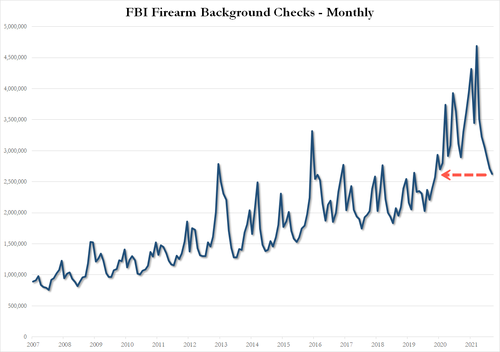The Amish are having none of your Flu Manchu panic:
[Amish Mennonite Calvin Lapp]: There’s three things the Amish don’t like. And that’s government— they won’t get involved in the government, they don’t like the public education system— they won’t send their children to education, and they also don’t like the health system. They rip us off. Those are three things that we feel like we’re fighting against all the time. Well, those three things are all part of what Covid is.
After a short shutdown last year, the Amish chose a unique path that led to Covid-19 tearing through at warp speed. It began with an important religious holiday in May.
Lapp: When they take communion, they dump their wine into a cup and they take turns to drink out of that cup. So, you go the whole way down the line, and everybody drinks out of that cup, if one person has coronavirus, the rest of church is going to get coronavirus. The first time they went back to church, everybody got coronavirus.
Lapp says they weren’t denying coronavirus, they were facing it head on.
Lapp: It’s a worse thing to quit working than dying. Working is more important than dying. But to shut down and say that we can’t go to church, we can’t get together with family, we can’t see our old people in the hospital, we got to quit working? It’s going completely against everything that we believe. You’re changing our culture completely to try to act like they wanted us to act the last year, and we’re not going to do it.
Steve Nolt is a scholar on Amish and Mennonite culture, and Mennonite himself. He’s studying Amish news publications to analyze community-wide trends.
Sharyl: So, are you saying, as of about May of 2020, things kind of went back to normal in the Amish community?
Steve Nolt: For the most part, yeah, by the middle of May, it’s sort of like back to a typical behavior again.
That also meant avoiding hospitals.
Nolt: I know of some cases in which Amish people refused to go to the hospital, even when they were very sick because if they went there, they wouldn’t be able to have visitors. And it was more important to be sick, even very sick at home and have the ability to have some people around you than to go to the hospital and be isolated.
Then, last March, remarkable news. The Lancaster County Amish were reported to be the first community to achieve “herd immunity,” meaning a large part of a population had been infected with Covid-19 and became immune.
Nolt: Even those who believed that they had Covid tended not to get tested. Their approach tended to be, “I’m sick. I know I’m sick. I don’t have to have someone else telling me I’m sick.” Or a concern that if they got a positive test, they would then be asked to really dramatically limit what they were doing in a way that might be uncomfortable for them. So, we don’t have that testing number.
Lapp: We didn’t want the numbers to go up, because then they would shut things more. What’s the advantage of getting a test?
One thing’s clear: there’s no evidence of any more deaths among the Amish than in places that shut down tight— some claim there were fewer here. That’s without masking, staying at home, or another important measure.
No lockdowns.
No isolation.
No vaccine.
No mandates.
The Amish did everything the Democratic Media Complex said was anathema and came through just fine, with no notable excess deaths, and got on with living their lives. Also: “We made more money in the last year than we ever did. It was our best year ever.”
(Hat tip: Ann Althouse, who restored the comments sections to her blog posts.)

